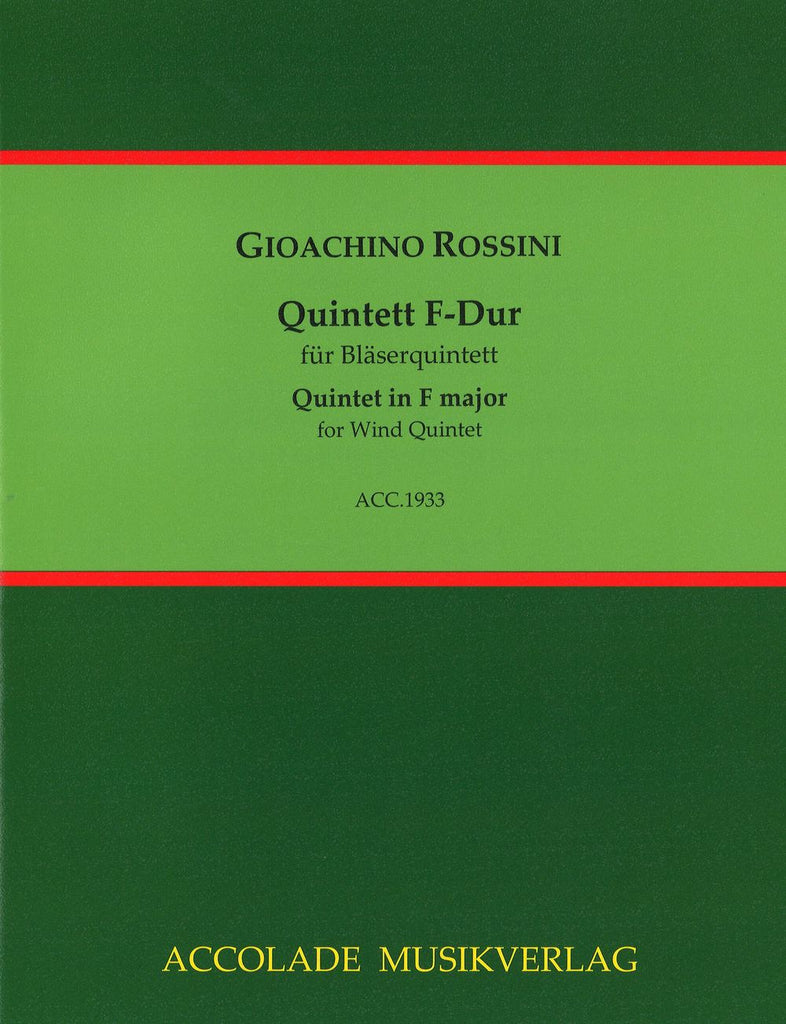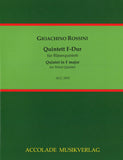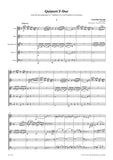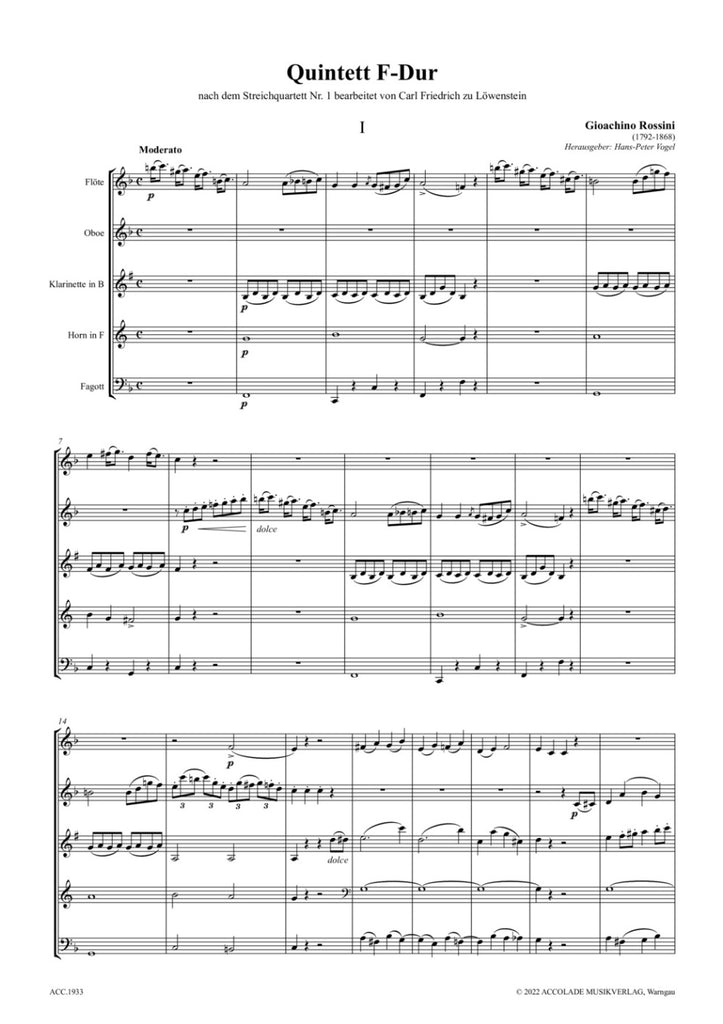Quintet in F (score & parts) - WW5
Composer: Rossini, Gioachino
Publisher: Accolade (Germany)
Edition: 71079
$44.95
Quintet in Eb Major, op. 1
for woodwind quintet: flute, oboe, clarinet, horn, and bassoon
by Gioacchino Rossini (1792-1868) - Italian opera composer
1. Moderato
2. Andante
3. Menuetto
4. Allegro
In the former, very extensive sheet music collection of Prince Carl Friedrich zu Löwenstein-Wertheim-Freudenberg-Triefenstein (1781-1852) there is a volume of music with five wind quintets - arrangements of piano works and string quartets by Conradin Kreutzer, Ignaz Pleyel, Ludwig van Beethoven and Wolfgang Amadé Mozart. The second quintet of this collection, here in print for the first time, is a version of the first sonata by Rossini for the instrumentation of the classical wind quintet.
As can be seen from the inventory list of the princely sheet music collection, Carl Friedrich zu Löwenstein used the edition for string quartet of the Hofmeister publishing house from Leipzig as a model. He played all orchestral instruments and was assisted, not only in this arrangement, by his teacher and friend Friedrich Witt (1770-1836), who played music with him a great deal and taught him composition. Witt was the last court Kapellmeister in Würzburg and, as we know from letters, was a frequent guest at Tiefenstein Castle, where Carl Friedrich zu Löwenstein maintained an orchestra of musically gifted servants. Every Wednesday there was a concert there, to which the population of the surrounding villages was invited with free admission.
About this edition: The musical text of the string quartet original has been transferred unabridged, the first and last movement - as in the version by Berr - transposed from G major to F major. The slow movement has been left in the original key. The minuet is an addition and obviously an original composition of the princely music lover. Information on dynamics is used very sparingly in the original and has not been (unnecessarily) added by the editor.
While the paired harmony music was an expression of a courtly-aristocratic understanding of music, the wind quintet is a symbol of social change and musical awakening. This very skilful and tonally colourful transcription of a string quartet is thus not only a testimony to the musical culture at a small princely court in the first half of the 19th century, but above all a playful enrichment of the repertoire for wind quintet.





Share this item: